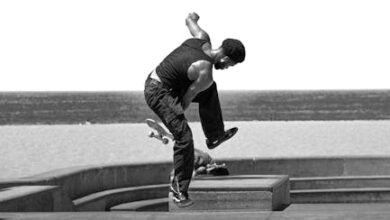The Perpetual Motion of Coaching Changes at Top Clubs

The beautiful game, they say, is a theatre of dreams, but it’s also a relentless arena of expectations, particularly at the very pinnacle of club football. Few clubs embody this high-stakes reality more profoundly than Juventus. The Bianconeri, a name synonymous with relentless ambition and a storied history of success, always seem to be at the heart of the footballing rumour mill. And lately, the gears have been grinding louder than ever.
While the football world, ever-churning with speculation, recently set tongues wagging with reports surrounding Igor Tudor and Juventus – particularly the notion of a ‘sacking’ – the more pertinent truth, and the one that truly matters to the club’s loyal legions, is that the Bianconeri are indeed on the lookout for a new coach. Whether it’s a planned transition or a course correction, the message from Turin is clear: a new chapter is set to begin on the touchline, and the whispers of a former Italy boss taking the reins are growing into a crescendo.
This isn’t just about a change of personnel; it’s about a potential shift in philosophy, a fresh injection of tactical acumen, and perhaps, a return to the indomitable winning mentality that has defined the Old Lady for generations. What does this mean for one of Europe’s most decorated clubs? Let’s delve into the fascinating, often brutal, world of football management at its highest level.
The Perpetual Motion of Coaching Changes at Top Clubs
In modern football, especially at clubs with the stature of Juventus, stability is often a mirage. The pressure for immediate results is immense, the scrutiny from fans and media is unrelenting, and the financial implications of success (or failure) are staggering. A coaching tenure, no matter how promising it begins, can quickly unravel if the team’s performance doesn’t align with the club’s lofty aspirations.
Take Juventus, for instance. Their history is punctuated by periods of dominance, often spearheaded by iconic managers. But even legends eventually move on, or sometimes, are moved on. The very essence of being a top-tier club means that anything less than challenging for every available trophy is considered a disappointment. This isn’t unfair; it’s simply the cost of doing business at the top.
When a club like Juventus decides it’s time for a change, it’s rarely a knee-jerk reaction. It’s often the culmination of various factors: inconsistent results, a perceived lack of tactical identity, a disconnect with the dressing room, or an inability to evolve with the modern game. The modern coach isn’t just a tactician; they’re a psychologist, a media manager, a motivator, and a figurehead. It’s a role that demands an almost superhuman blend of skills, and few can sustain it without eventually hitting a wall.
What Defines Success at Juventus?
For the Bianconeri, success isn’t just about winning; it’s about how you win. It’s about a certain grit, a resilience, a never-say-die attitude that has become ingrained in the club’s DNA. Fans expect not only trophies but also a team that fights for every ball, that exhibits a clear tactical vision, and that carries the weight of the famous black and white stripes with pride. Any coach who steps into that hot seat must not only understand this but embody it.
The Hunt for the Next Bianconeri Leader: An Italian Maestro on the Horizon?
So, with the managerial carousel spinning, the question isn’t just who, but what kind of coach does Juventus truly need right now? The rumour mill, as mentioned, is buzzing with talk of a former Italy boss being tipped to take over. This is a fascinating prospect, rich with implications.
A coach who has managed the Italian national team brings a unique set of credentials to a club like Juventus. They understand the intricacies of Italian football, the tactical nuances of Serie A, and the immense pressure that comes with representing an entire nation. This isn’t just about X’s and O’s; it’s about cultural understanding, managing high-profile personalities, and navigating the often-complex media landscape of Italian sport.
The Allure of an Italian Maestro
Think about it: an Italian coach, especially one who has commanded the Azzurri, has been forged in a crucible of tactical obsession and national pride. They often possess a deep knowledge of the domestic talent pool, an innate understanding of the league’s competitive rhythm, and a pragmatic approach to getting results. They’ve dealt with the emotional roller-coaster of international tournaments, the weight of expectation from 60 million people, and the intense scrutiny that follows every decision.
Such a manager would likely bring a clear tactical identity, often rooted in defensive solidity but capable of attacking flair. They would command respect from the dressing room and understand the unique demands of a club like Juventus, where ‘winning isn’t important, it’s the only thing’ is more than just a slogan – it’s a philosophy.
The potential appointment of a former Italy boss isn’t merely about bringing in a big name; it’s about bringing in someone who has already proven their mettle on the grandest stages, both domestically and internationally. It signals a desire from Juventus to revert to a proven formula, to perhaps rekindle that quintessentially Italian blend of defensive masterclass and strategic brilliance.
Rebuilding Juventus: More Than Just a Name on the Touchline
Let’s be clear: this isn’t just about finding a new coach to plug into an existing, perfectly oiled machine. Juventus is a club in a period of transition, grappling with the echoes of past glories while forging a new path forward. The next manager will inherit not just a squad, but a responsibility to redefine the club’s identity for the next generation.
The challenges are multifaceted. There’s the need to integrate youth talent with established stars, to manage the squad through a demanding calendar of domestic and European fixtures, and to compete against increasingly strong rivals in Serie A. Beyond the pitch, there’s the ongoing financial landscape of modern football, balancing ambition with fiscal responsibility. The transfer market isn’t just about acquiring talent; it’s about smart, strategic investments that align with the coach’s vision and the club’s long-term goals.
The Weight of History and Future Expectations
The chosen leader will need to restore a sense of consistent dominance. Juventus fans crave that feeling of invincibility, that unshakable belief that no matter the opponent, the Bianconeri will emerge victorious. This requires not just tactical brilliance but also incredible man-management skills to instill confidence, foster unity, and get the very best out of every player.
This coach will be tasked with more than winning individual matches; they’ll be tasked with building a legacy, with writing the next glorious chapter in Juventus’s rich history. It’s a monumental undertaking, but for the right leader, it’s also the kind of challenge that defines a career.
The impending announcement of a new coach at Juventus marks a pivotal moment for the club. It’s a decision that will ripple through Italian football and beyond, setting the tone for their ambitions in the seasons to come. Whether the whispers of a former Italy boss turn into shouts, one thing is certain: the eyes of the footballing world will be firmly fixed on Turin, eager to see how the Old Lady charts her course back to undisputed glory. The stage is set, the drama is building, and for fans, the hope of a new, triumphant era is palpable.





